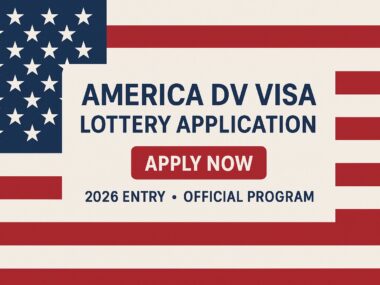Understanding Recruitment Agencies in the United States
Recruitment agencies in the United States play a critical role in matching job seekers, including foreign workers, with employers. They also often assist with navigating the visa process.
Types of Recruitment Agencies
There are several types of recruitment agencies in the United States, each specializing in different sectors. Generalist agencies handle a broad range of industries, while specialist agencies focus on specific fields such as tech or healthcare.
Temporary staffing agencies provide short-term work opportunities, while executive search firms focus on filling high-level positions. Larger agencies often have the resources to assist foreign workers more effectively, leveraging extensive networks to place candidates.
Role of Recruitment Agencies in Visa Process
Many recruitment agencies also play a crucial role in the visa process for foreign workers. They help both employers and job seekers understand visa requirements and collect necessary documentation.
Some agencies even specialize in global talent acquisition, offering services that include sponsorship and legal advice. Collaborating with these agencies can simplify obtaining work visas, ensuring compliance with U.S. immigration laws.
For a list of top agencies providing these services, explore this resource. These agencies guide applicants through every step, from job matching to securing the right visa.
Steps to Engaging with US Recruitment Agencies
Engaging with US recruitment agencies involves systematic research and building effective communication channels. The following steps break down the process to help foreign workers navigate this successfully.
Researching Suitable Agencies
Start by identifying agencies that specialize in hiring foreign workers. Websites like Randstad and Robert Half are known for their global reach.
Check the agency’s track record. Look for reviews and testimonials from previous clients. Investigate how often they successfully place foreign candidates in US jobs.
Verify the industries they cover. Some agencies, like Kforce, focus on sectors like technology and professional services. Ensure the agency aligns with your career goals.
Assess their services. Some agencies offer additional services like resume building or interview coaching. These can be invaluable in enhancing your job search.
Initiating Contact and Communication
Once you’ve shortlisted suitable agencies, it’s time to initiate contact. Craft a compelling cover letter. Explain your background, skills, and why you’re interested in working in the USA.
Send an email or use their online contact form. Be clear and concise in your communication. Highlight your strengths and attach a well-structured resume.
Follow up if you don’t receive a response within a week. A polite reminder can show your eagerness and professionalism.
Prepare for potential interviews. Some agencies may conduct preliminary interviews to understand your skills better. Be ready to discuss your experience and job preferences in detail.
Regularly check your email and stay responsive. Prompt communication can build a positive relationship with the agency and improve your chances of landing a suitable job.
Best Practices for Foreign Workers
Foreign workers seeking opportunities in the United States can benefit from understanding the nuances of crafting a standout resume and familiarizing themselves with US employment laws and workers’ rights.
Creating an Appealing Resume
An effective resume is essential for catching the attention of recruiters and employers. Begin with clear contact information, including your name, phone number, and email address. Use a professional email that includes your name.
Highlight your skills and experience in a concise manner. Use bullet points to list your achievements and responsibilities in previous jobs. Quantify your accomplishments when possible, for example, “Managed a team of 10” or “Increased sales by 20%.”
Tailor each resume to the job you are applying for. Incorporate keywords from the job description into your resume to pass through automated screening systems. Emphasize relevant experience and skills that match the job requirements.
Include a professional summary at the top of your resume. This should be a few sentences summarizing your experience and what you bring to the role. For example, “Dedicated IT professional with over five years of experience in software development and project management.”
Understanding US Employment Law and Workers’ Rights
Knowledge of US employment laws is vital to protecting yourself as a foreign worker. Familiarize yourself with your rights regarding wages, working conditions, and discrimination. The US Department of Labor provides resources that detail fair recruitment practices for migrant workers.
Understand visa regulations specific to your employment. Different visas have different requirements and restrictions. For example, H-2 visas are for temporary agricultural and non-agricultural workers, while H-1B visas are for skilled workers in specialty occupations.
Be aware of anti-discrimination laws which protect workers from unfair treatment based on race, color, religion, sex, national origin, age, disability, or genetic information. For detailed guidelines, refer to resources such as the Best Practices for Recruiting and Hiring Workers.
Know your rights to safe working conditions and the ability to report unsafe practices without fear of retaliation. This includes the right to receive payment for all hours worked and to work in an environment free of harassment or abuse.
By following these practices, foreign workers can navigate the US job market more effectively and secure meaningful employment opportunities.


